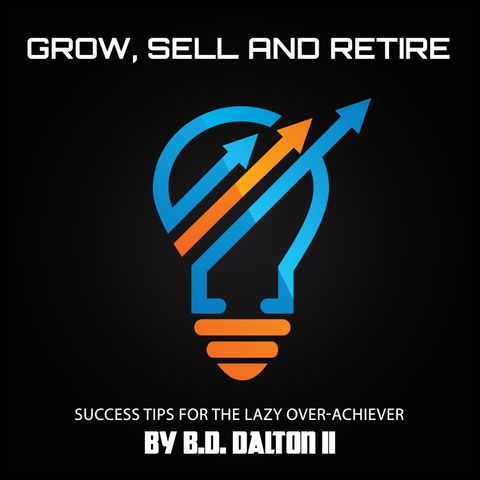23 ENE. 2024 · Want to Crush the Competition? Here is episode 3 of our mini Series from Dave Dodson.
Get in here.
Small Business Strategy: Key to Growth
The discussion revolved around the importance of business strategy, especially for small business owners. B.D. and David spoke about the significance of strategy for business growth, even for companies with a small market share. David shared insights from their book, "The Manager's Handbook," and their collaborations with thought leaders such as Michael Porter. They emphasized that having a clear strategy can help businesses stand out in their respective markets. The conversation also touched upon the importance of forming a strong team to execute the strategy and understanding the market dynamics. David suggested that listening to the market and being open to advice are crucial steps in designing a successful strategy.
Market Insights and Strategy Focus
David emphasized the importance of gathering information from employees, customers, vendors, and competitors to better understand the marketplace. They highlighted the need for a specific definition of quality from the customer's perspective and the importance of sticking to a strategy. B.D. questioned the reluctance of companies to ask customers and competitors certain questions, such as why they do or don't exclusively buy from them. David explained the value of open-ended questions and the insights they could provide, as well as the role of trade shows in gathering information. They also stressed the importance of maintaining focus on the strategy without losing sight of the company's mission, vision, and values.
Integrating Leadership and Management Skills
David stressed the importance of integrating various skills of leadership and management, such as hiring and retaining good people, maintaining a focus on priorities, and adhering to quality, to achieve maximum performance. They emphasized that these elements should not be selectively applied but should work together. B.D. raised the concern of how to ensure that employees and clients understand and buy into the company's strategy, to which David responded that setting and maintaining priorities, saying no to distractions, and having specific tools in place can help maintain focus. B.D. shared their personal application of these strategies with clients and expressed plans to provide them with books on the subject.
Operating Plan Development Process
David explained the process of developing an operating plan, emphasizing that it's not merely a budget but a strategic document that outlines focus areas, priorities, and day-to-day operations. They highlighted the importance of involving key stakeholders in the planning process and seeking outside advice. David also stressed the need for leaders to communicate and emphasize the plan's importance throughout the organization. They shared examples of successful companies, such as Southwest Airlines, where all employees are aware of and committed to the operating plan.
Maintaining Corporate Culture and Strategy
B.D. and David discussed the concept of maintaining corporate culture and strategy. B.D. expressed interest in how to ensure a strategy continues to work, prompting David to explain the title of Chapter 21, "Walk behind the Tractor". They shared their father's experience of manufacturing pharmacy equipment, and how they would follow customers to understand their use of the product. David emphasized the importance of understanding the end user's experience, particularly for software companies, where the IT department may not fully understand the product's use. The discussion concluded with David explaining how companies can adapt the "walk behind the tractor" concept based on their specific needs.
Strategy and KPIs in Business Operations
B.D. and David discussed the importance of a clear and actionable business strategy, suggesting that it should be adjusted and honed as needed. David emphasized that this strategy should guide a business's daily operations and that the team must be aligned with it. They also highlighted the importance of selecting appropriate key performance indicators (KPIs) to measure the success of the strategy. Using a lumber yard as an example, David explained that a business should identify its target market and tailor its strategy accordingly.
Key Performance Indicators in Business Strategy
David stressed the significance of setting the right Key Performance Indicators (KPIs) in business strategy. They explained that if contra indicators arise, it doesn't necessarily mean the strategy is wrong; it could mean the KPIs are incorrect or the strategy is being implemented in the wrong way. They highlighted the importance of making adjustments early and not waiting until year three to recognize and adjust a wrong strategy. They also emphasized the need for business leaders to be willing to receive advice and surround themselves with a good board to bounce strategies off of.
Seeking Advice for Better Decisions
David emphasized the importance of seeking and taking advice to make better and faster decisions. They suggested a strategic approach to seeking advice, which includes structuring conversations to maximize value and building habits and norms within an organization to encourage decision-making and advice-taking. David also mentioned the concept of teachers and managers, advising to shift mindset to that of a teacher. The discussion concluded with David recommending Rob Siegel, a Stanford author, for a future podcast.
https://davedodson.com/


